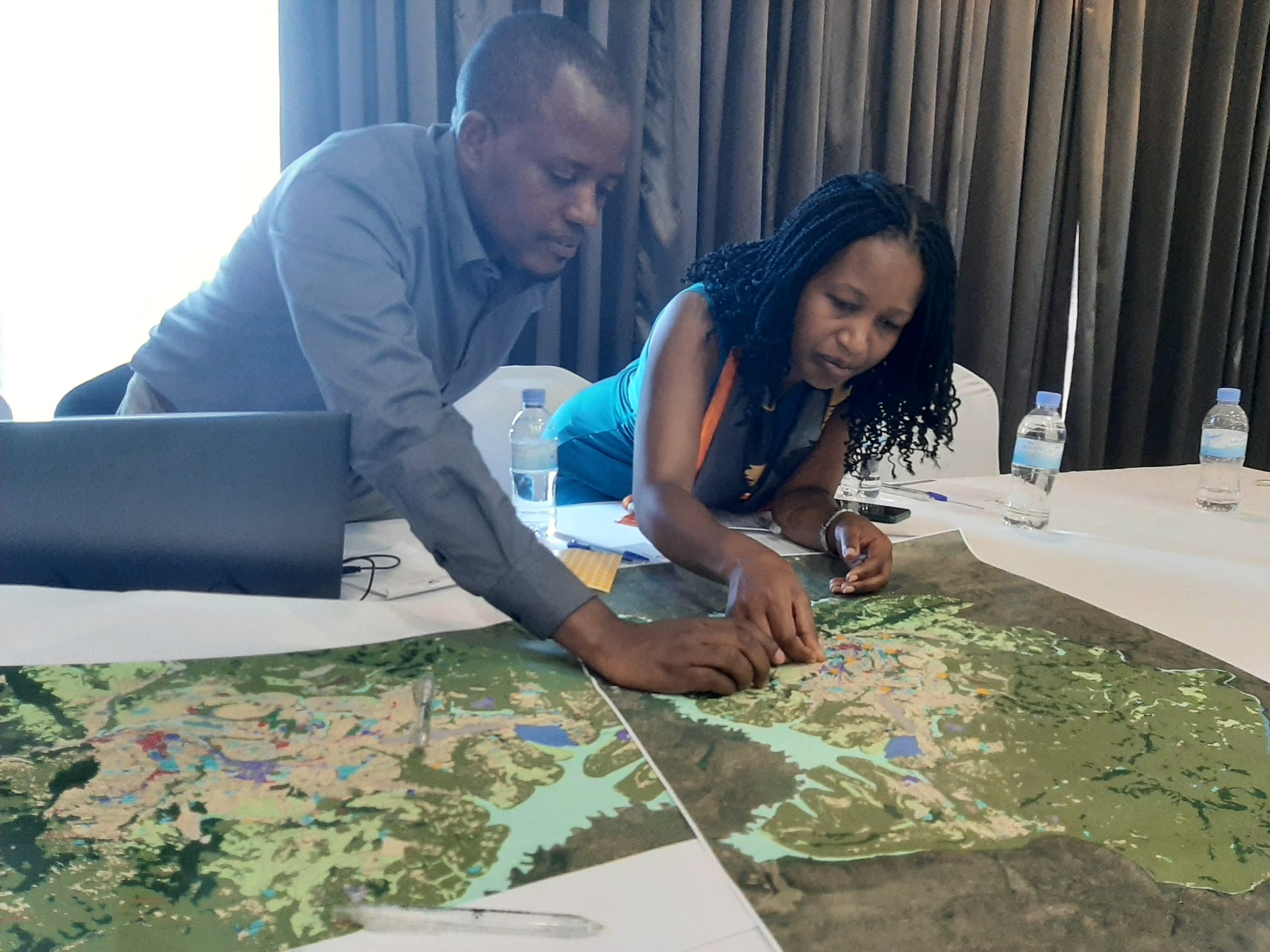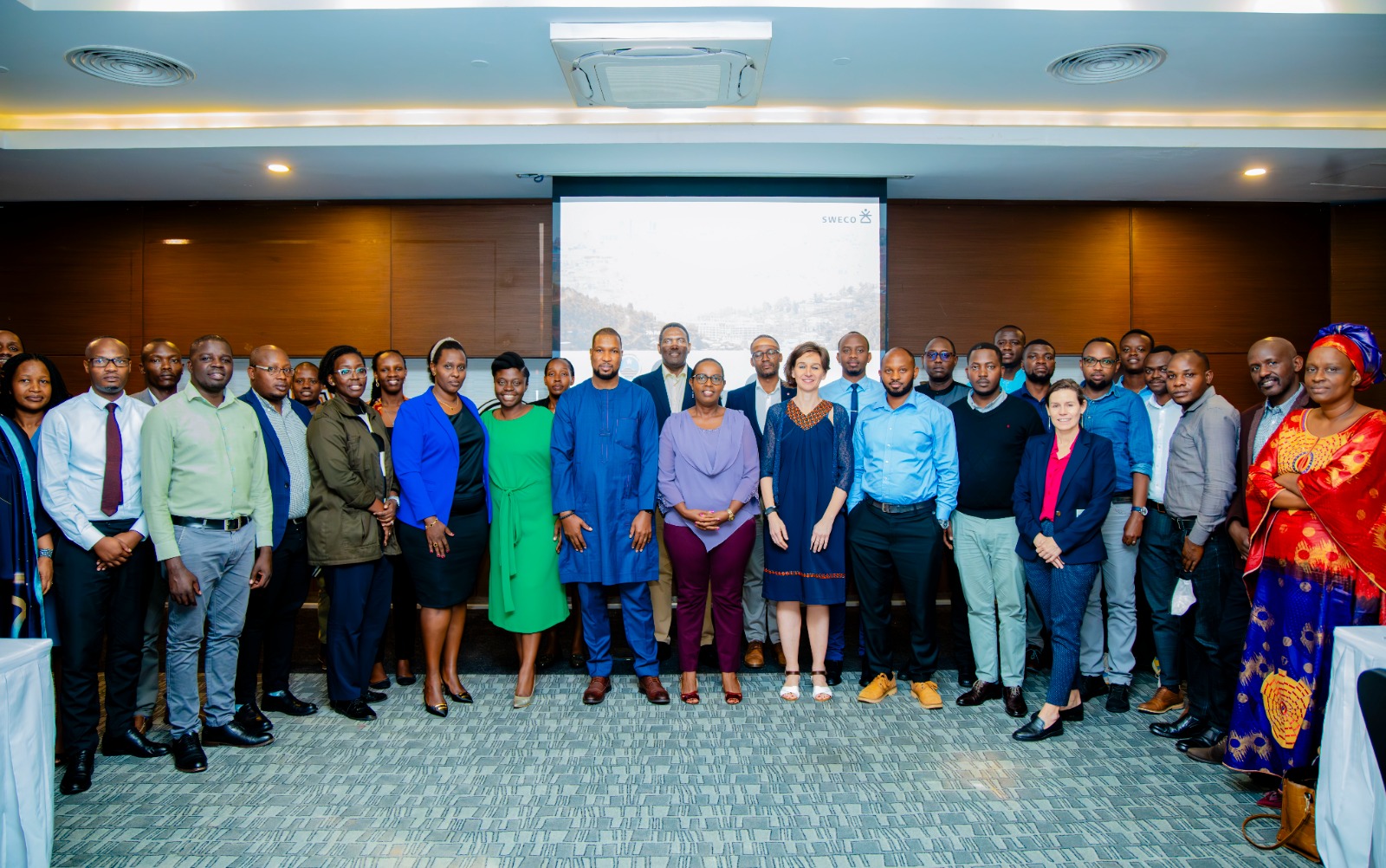Kigali started its City Diagnostic as a new member of the AfDB’s African Cities Program
During a “city profiling” workshop, representatives of the national and local governments gathered with development partners to build a precise diagnostic of Kigali. A first step in the support process for this municipality, as a member of the African Cities Program (ACP) of the African Development Bank (AfDB).
During a “city profiling” workshop, representatives of the national and local governments gathered with development partners to build a precise diagnostic of Kigali. A first step in the support process for this municipality, as a member of the African Cities Program (ACP) of the African Development Bank (AfDB).
On the 7th of February 2024, in the Ubumwe Grande Hotel, the authorities of the Kigali municipality became familiar with the methodology developed by the Urban and Municipal Development Fund (UMDF) of the AfDB, a guidance that aims to provide the city with an action plan for its urban investments.
Presided over by the vice-mayor in charge of socio-economic affairs, Mrs Urujeni Martine, the workshop also involved representatives of executing agencies and funding organizations. The exchanges started with an analysis of key urban development challenges and opportunities within the city, by engaging with stakeholders in the formulation of a long-term development vision and strategic objectives.
The attendants were divided in four working groups and were asked to bring up challenges about water, transport, buildings, energy, waste, land use and biodiversity, climate risks, and institutional settings. The event benefited from the expertise of SWECO, a firm specialized in urban planning and responsible for supporting Kigali within the African Cities Program.

The discussions valued a multisectorial approach to build solutions able to solve various problems at once. For instance, the stakeholders identified financial and technical capacities, private partnerships and citizen’s involvement as key levers to build the Kigali of tomorrow.
Climate was also a much discussed topic as flooding, landslides and rainstorms are a growing threat, with a higher impact on low income communities and informal settlements. One of the challenges highlighted by the participants was the need for a stronger weather forecast to inform an early warning system. The workshop was accompanied by four days dedicated to field visits and work meetings, collecting inputs, insights and knowledge to nurture the urban vision.
Kigali is a young city (median age is 23 years) willing to achieve a resilient, livable and productive urbanization for its 1,7 million inhabitants. The high urban growth, with a population projected to nearly double by 2050, results in a rapid urban expansion and an increasing gap in service provision and infrastructure. Being part of the Africa Cities Program of the AfDB is an opportunity for the city to fill this gap.
Fostered by the UMDF of the AfDB, the ACP is a comprehensive long-term support to prepare concrete investments for resilient infrastructure and essential services. Launched in 2020 with a gender sensitive and multi-sectoral approach, the ACP fosters a city vision with inclusiveness and sustainability.
Next step for Kigali: after the approval of its City Diagnostic, the city will benefit from a second workshop to consolidate a long term vision and identify priority projects. The ACP paves the way for municipalities and project financiers, first and foremost the African Development Bank. The UMDF aims to extend this support to nearly 70 African cities by 2027.


